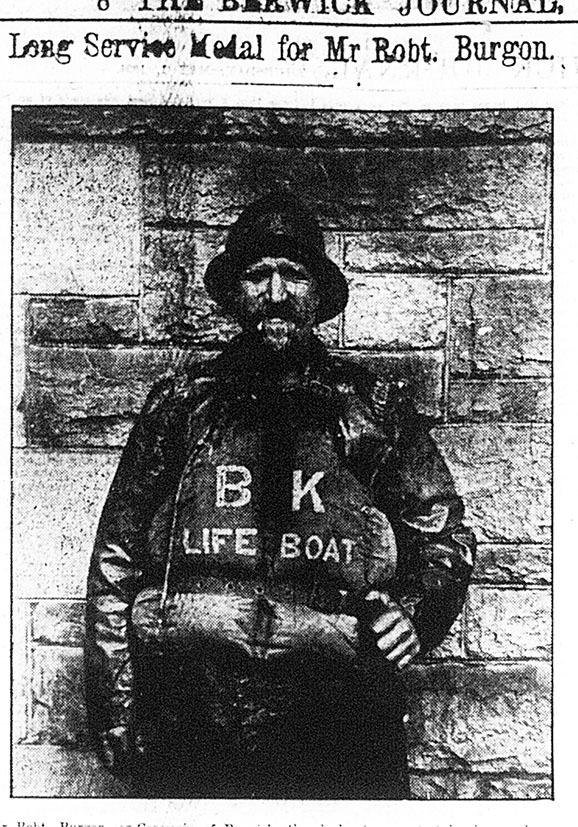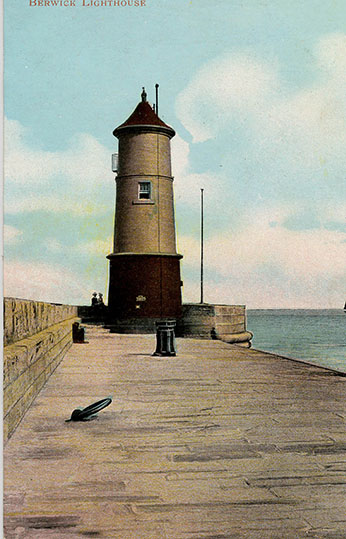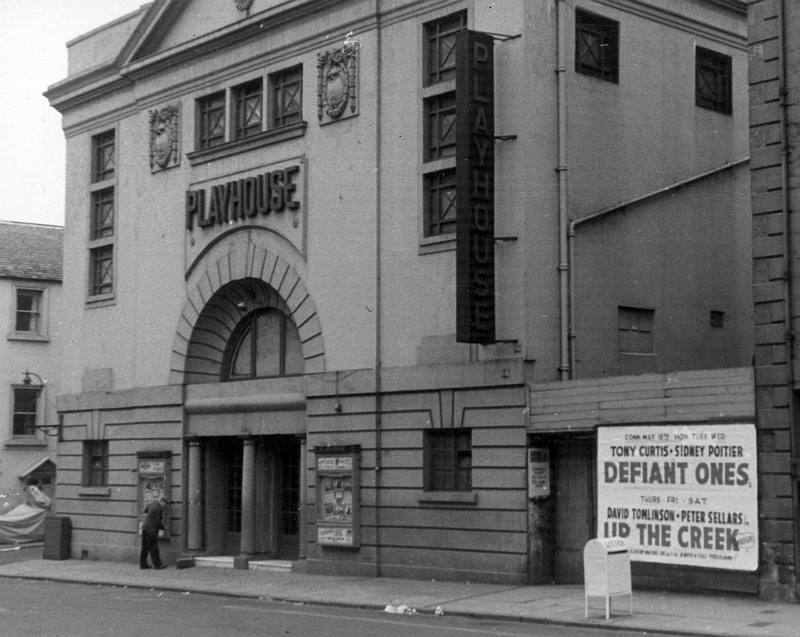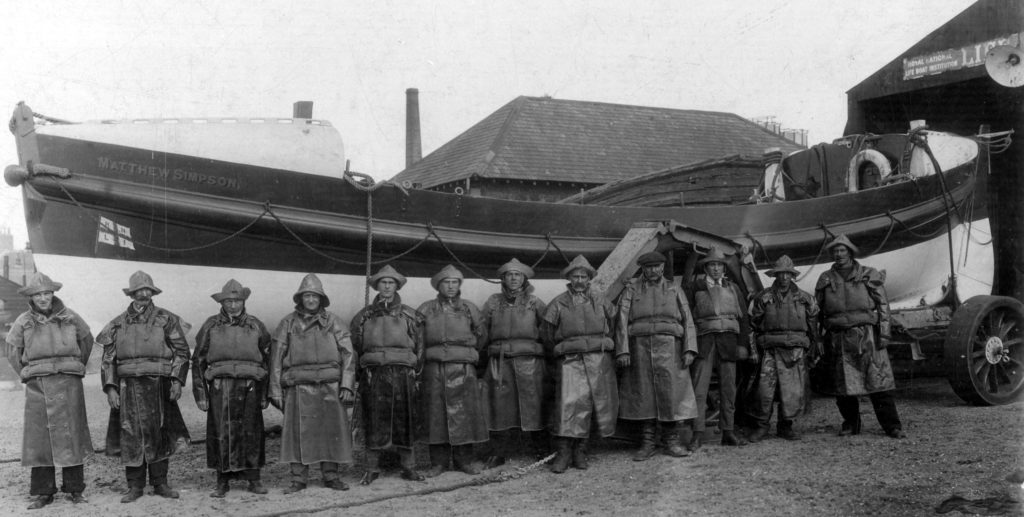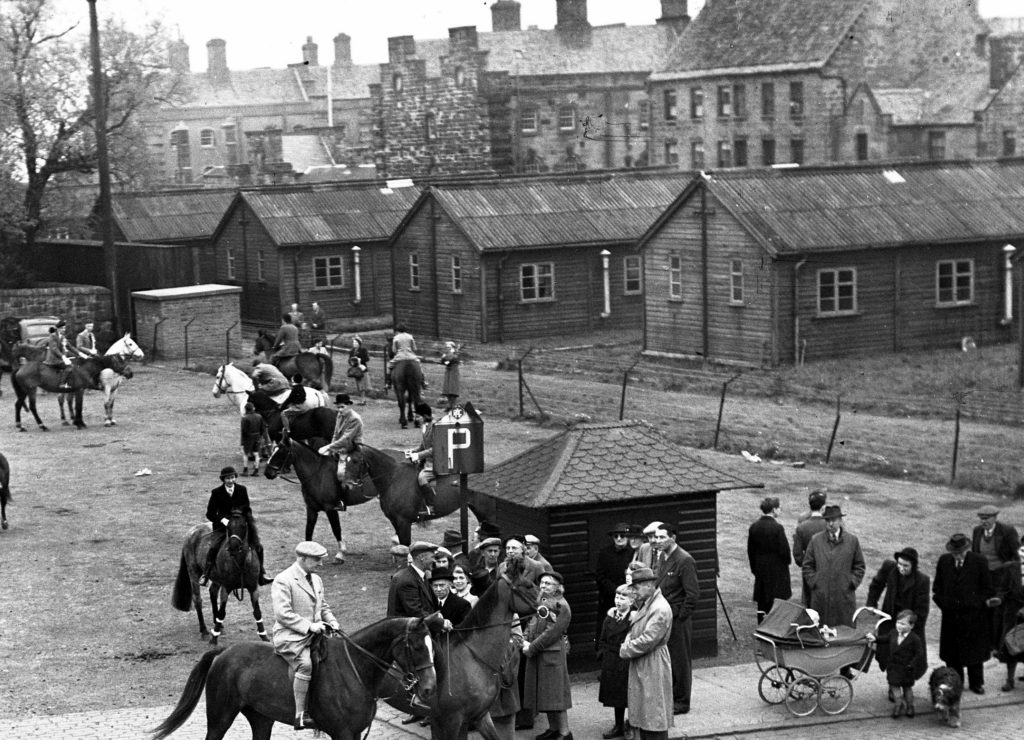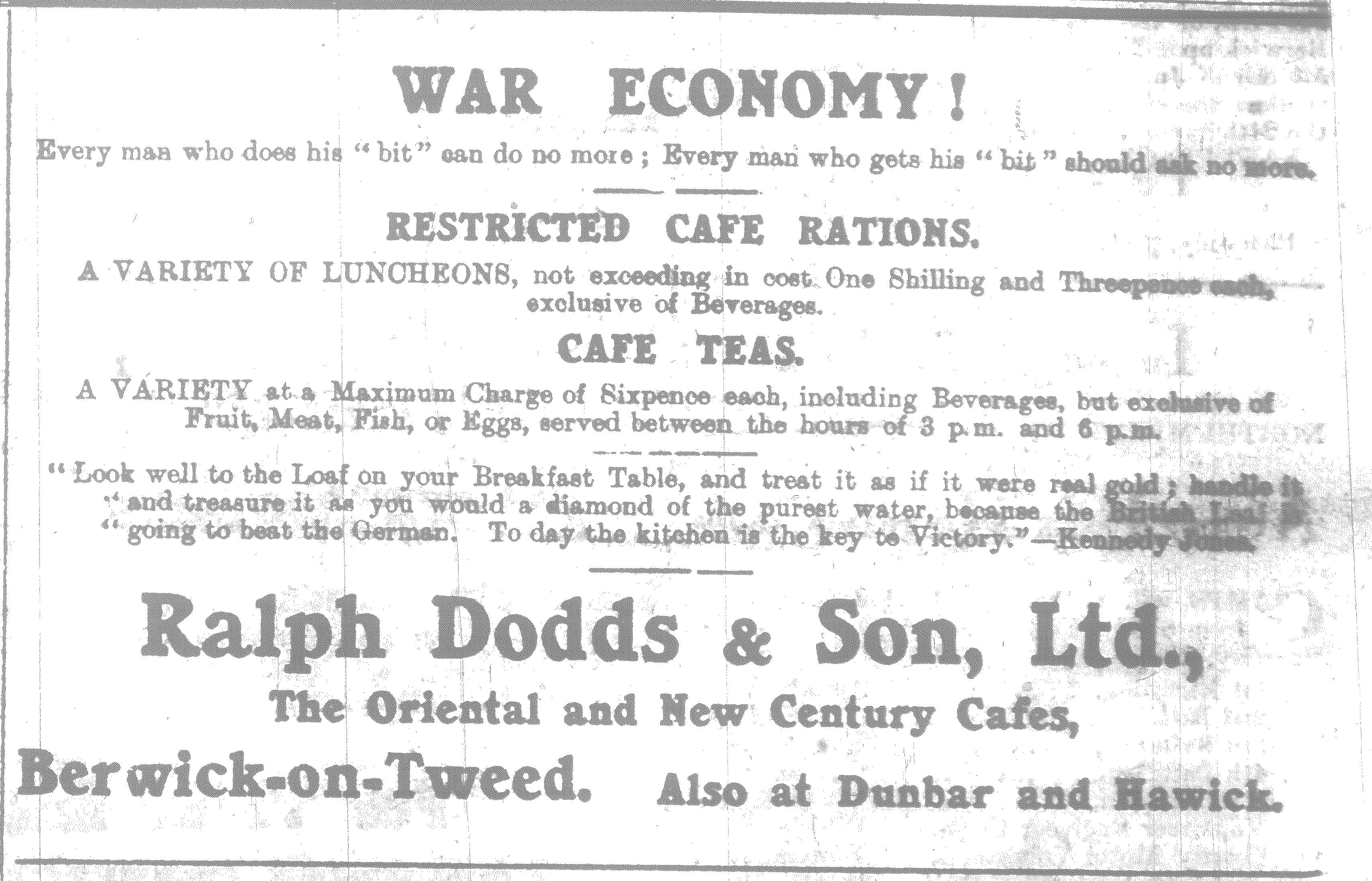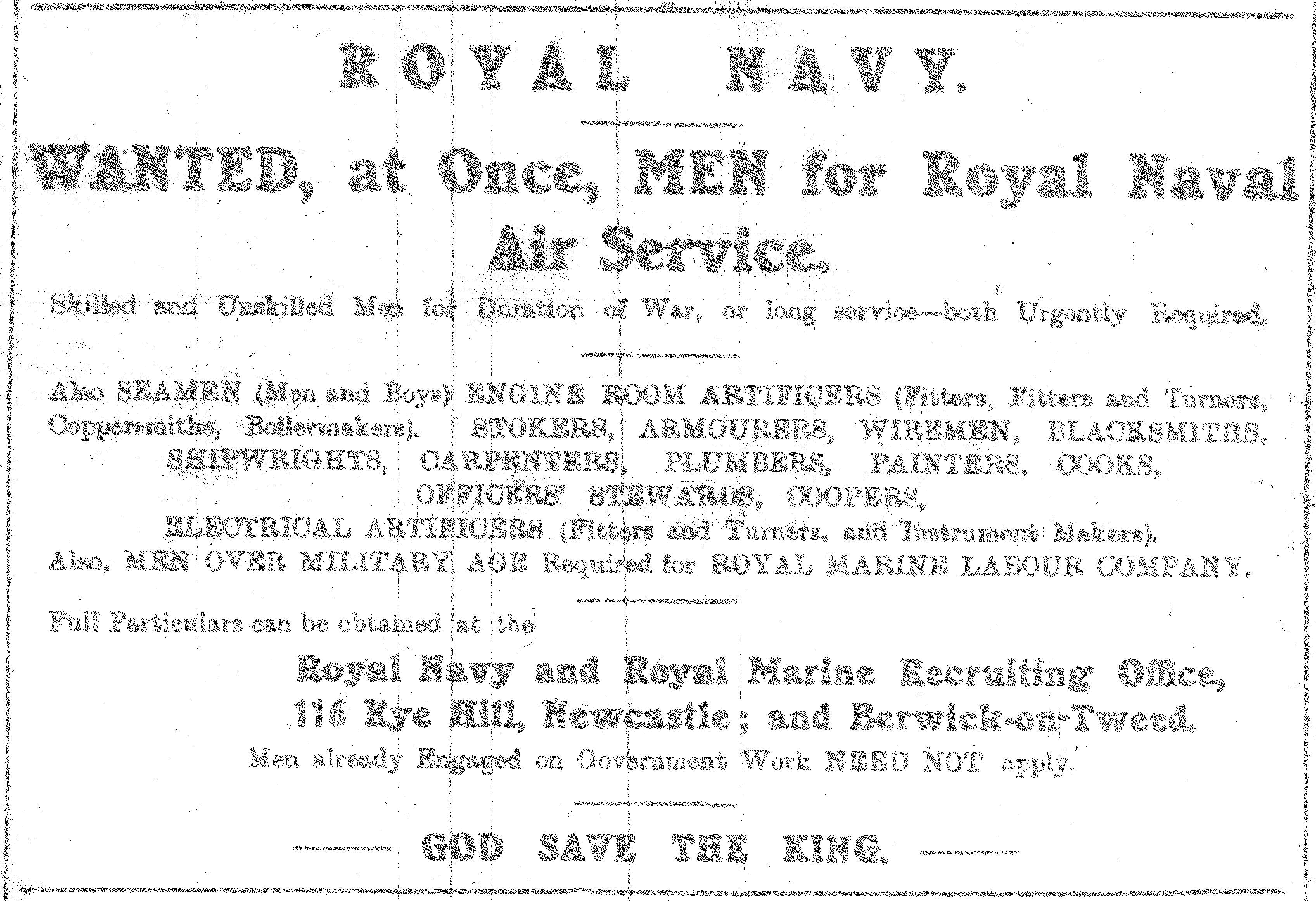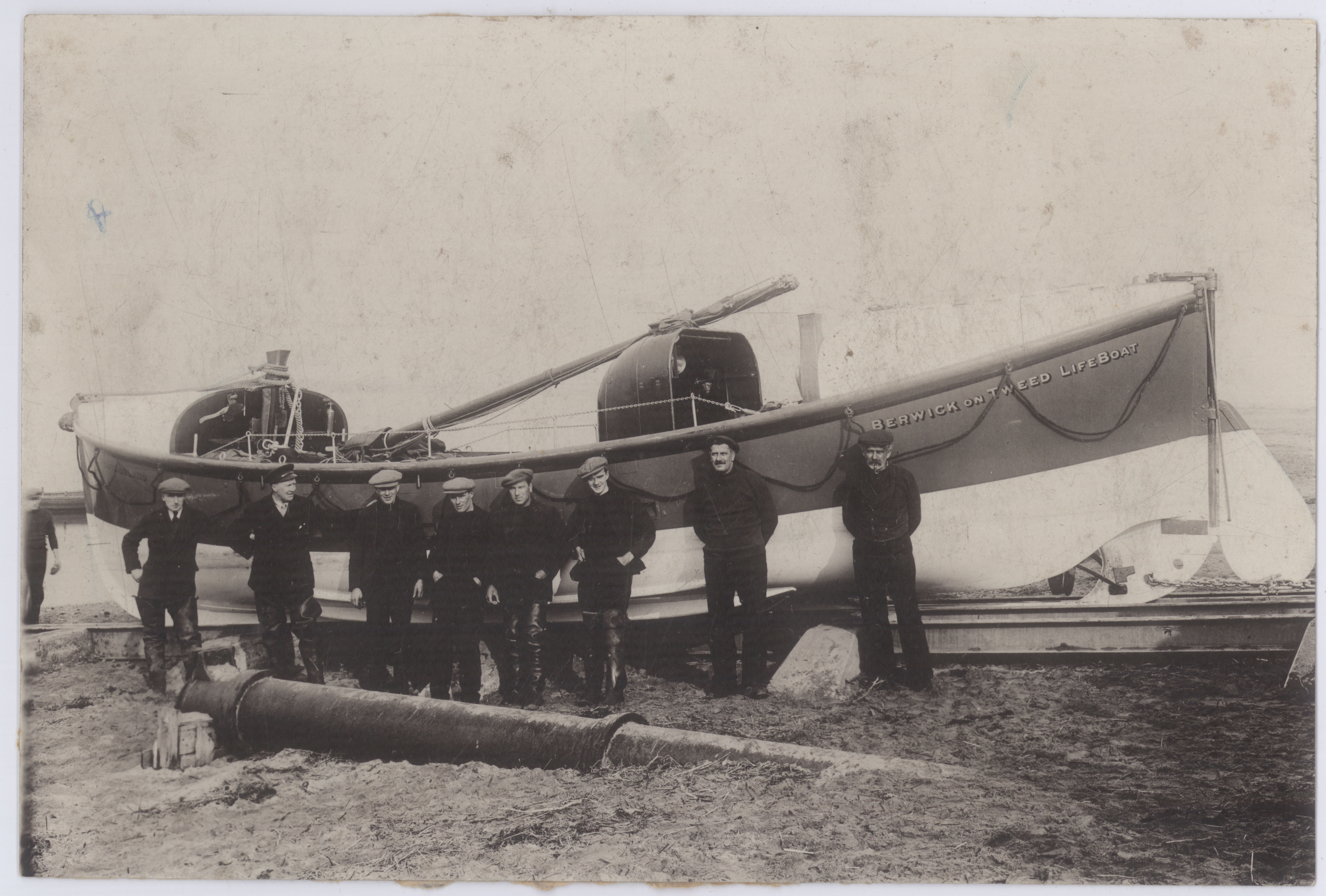LONG SERVICE MEDAL FOR MR ROBT.BURGON
Mr Robt. Burgon, ex-Coxswain of Berwick Lifeboat, has been awarded the Long Service Medal of the Lifeboat Institution. This medal was to have been presented to him on Sunday at Lifeboat Concert but did not come to hand.
When the lifeboat station was changed from Spittal to Berwick, Mr Burgon formed one of the original crew, and was appointed second Coxswain under his cousin, the late Mr James Burgon, who, after holding the office for 4 ½ years retired and became lighthouse keeper. On the retiral of his cousin Mr Burgon was promoted to the post of Coxswain, and held that position 14 ½ years, during which time he won the appreciation of his superiors. Berwick Lifeboat House was recognised by the Lifeboat inspector as a model of how such a place should be kept. It is significant of Mr Burgon’s keen sense of duty that during the time the boat was at Berwick he had only once been absent when the boat went to sea, and that was April 1914, when he himself was one of the persons to whose assistance the boat was called out.
During those years he assisted in rescuing about 30 lives, and the largest rescue was performed in March 1913, when the crew of the Swedish barque Jacob Rauers was saved from a watery grave.
The special vote of thanks on vellum, presented by Royal National Lifeboat Institution to ex-Coxswain Burgon, in recognition of his valuable service to the Institution and humanity at large, was publicly handed to him in Feb., 1920, in the Queen’s Rooms by Lady Francis G. Osborne, Ord House, president of the Berwick Branch.
In making the presentation lady Osborne said- The certificate was a mark of the Institution’s appreciations of the excellent work ex-Coxswain Burgon had performed on their behalf and for mankind at large. Had the audience thought of it? Mr Burgon had served 20 years in the lifeboat, 5 years as 2nd Coxswain and 15 years as skipper of the boat. They who lived within sight and sound of the North Sea knew full well what that meant, and what it must mean to the crew of a doomed ship to see the lifeboat battling to their rescue. It had been the custom in late years that after any meritorious service the Coxswain had received a medal. That was as it should be, because very often it was largely due to his seamanship that the rescue was due. But it had been felt that every member of the crew should receive some recognition and ow, thanks to the energy of the Secretary of the Berwick Branch it was suggested, and she hoped it would soon come to pass that every member of the crew would receive a badge at the same time as the Coxswain received his medal. Mr Burgon wore 2 medals on his breast and the other by the Swedish Government. On the latter were the words “For bravery and valour at sea.” What splendid words they were; and how glad Berwick people ought to be that they had among them a man, who, by his conduct, had earned such a medal. In handling over the certificate to Mr Burgon she expressed the hope that for many years it would remind him not only of the many lives he had saved, but of the 20 years of splendid work which he had given to the Institution. She knew it could not but bring back memories of days and nights when he battled with the waves, but she hoped also that it would remind him of the peace which followed the storm.
Mr Burgon, in returning thanks, said he was the first man to volunteer to become a member of the crew when the lifeboat was moved from Spittal to Berwick. His cousin: the late Mr Wm. Burgon was appointed Coxswain, and he himself received the appointment of 2nd Coxswain. For 4 ½ years they worked hand in hand, and then his cousin was appointed keeper of Berwick lighthouse, and he was promoted Coxswain. During all his 20 years he had done his best both for the crew and the Institution. On many a stormy night he had gone about the fields when everybody else was in bed. He thought that would be the last time he would have a presentation made to him in public. The lifeboat was now to be manned by a crew from Spittal; and he thought in Mr Lough they had got a man to take charge who was as good as he was himself. He promised that if ever the boat was needed, he would assist it in every way.
Dr C. L. Fraser said as Secretary he had been in the exceptional position of coming into close contact with the Coxswain and member of the crew, and he would like to state that during his long service ex-Coxswain Burgon had always been found on his beat. In speaking of their ex-Coxswain, he wished also to remember his very active lieutenant, ex-2nd Coxswain Jas. Jamieson (who is also to receive Long Service medal), who had done splendid service. They must not also forget the men who had sailed with these gentlemen- rank and file of Berwick Lifeboat. The Institution had agreed that their services too would be recognised and on some other night he hoped the badges for them would be publicly presented. The attributes of a good Coxswain were very many. He must have a keen professional knowledge, the ability to form his judgments quickly; and alertness and carrying these into practice. Robt. Burgon had shown on more than one occasion that he possessed all these qualities. He was sorry to have to say good-bye to so old a comrade. They had had many experiences together. Mr Burgon had been a good and faithful servant to the town, and to the Institution. He had brought great honour to the town, to the lifeboat and to himself, and in bidding him good-bye they could say to him “Well done.”
Commander Carr, R. N., said the rescue for which Mr Burgon received his Swedish medal was one of the finest pieces of work performed on this coast. He showed on that occasion a seamanship which few men would have shown. The life-saving apparatus could do nothing to save the crew of the schooner Jacob Rauers; and the lifeboat could get into communication with them only after much difficulty and skilful handling. In another 10 minutes or so the crew of the schooner would have been drowned. There was no jealousy now between the lifeboat and the L.S.A.
Bred of a fishing family, Mr Burgon, although born in Berwick, first became acquainted with the sea at Hartlepool, whither his benefits, along with many other Greenses families, removed when he was 2 ½ years of age. He first went to sea at the age of 11 in a boat skippered by his uncle, the late Alex. Hall, who for many years acted as Treasurer to the Greenses Fishermen’s Benefit Society, and who for a long time prior to his death a few years ago, was well known to the frequenters of Spittal Ferry.
Sandy decided to return to Berwick in the first year that “Bob,” as the subject of our sketch is familiarly known, was with him, and bringing his furniture with him in the boat he fished for a season at Berwick, after which Mr Burgon returned to Hartlepool. After a second season at Berwick, he settled in Hartlepool for a few years, and went to sea in a coble which his father, Mr James Burgon, had had built for the family. At the age of 19 Mr Burgon left his father and became skipper of a coble owned by his uncle. Fate dealt kindly with him for he left that crew and joined another uncle in the following year, and shortly afterwards the coble of which he had been skipper for a year was lost with all hands. 3 years later he came and settled in Berwick, but in the summer his father and other members of the family went to Hartlepool for the fishing there and in 9 weeks they shared £34. Afterwards he acted as skipper of the Berwick fishing vessel galatea and has acted as skipper of herring and line fishing boats ever since. He and one of his brothers fished together for 32 years and had 3 herrings boats in that time. Readers will remember the Brothers, belonging to his brother James, which foundered in the bay some years ago.
In a life spent at the mercy of the elements there have been many exciting incidents and numberless narrow escapes, but although his boat has been filled almost to the gunwales, and a coble belonging to some comrades had been sunk within a short distance of his own boat, which was also in great difficulties, he has come through it all, and in addition has had the satisfaction of rescuing others of his fraternity who were in distress.

